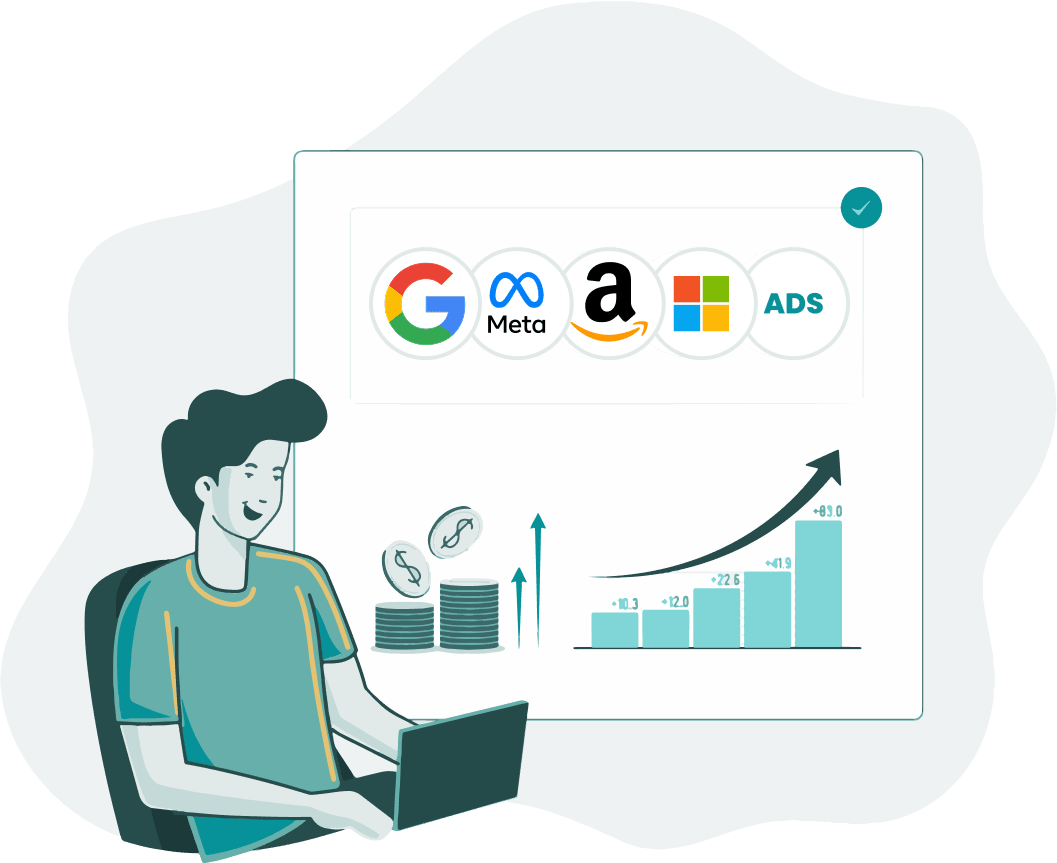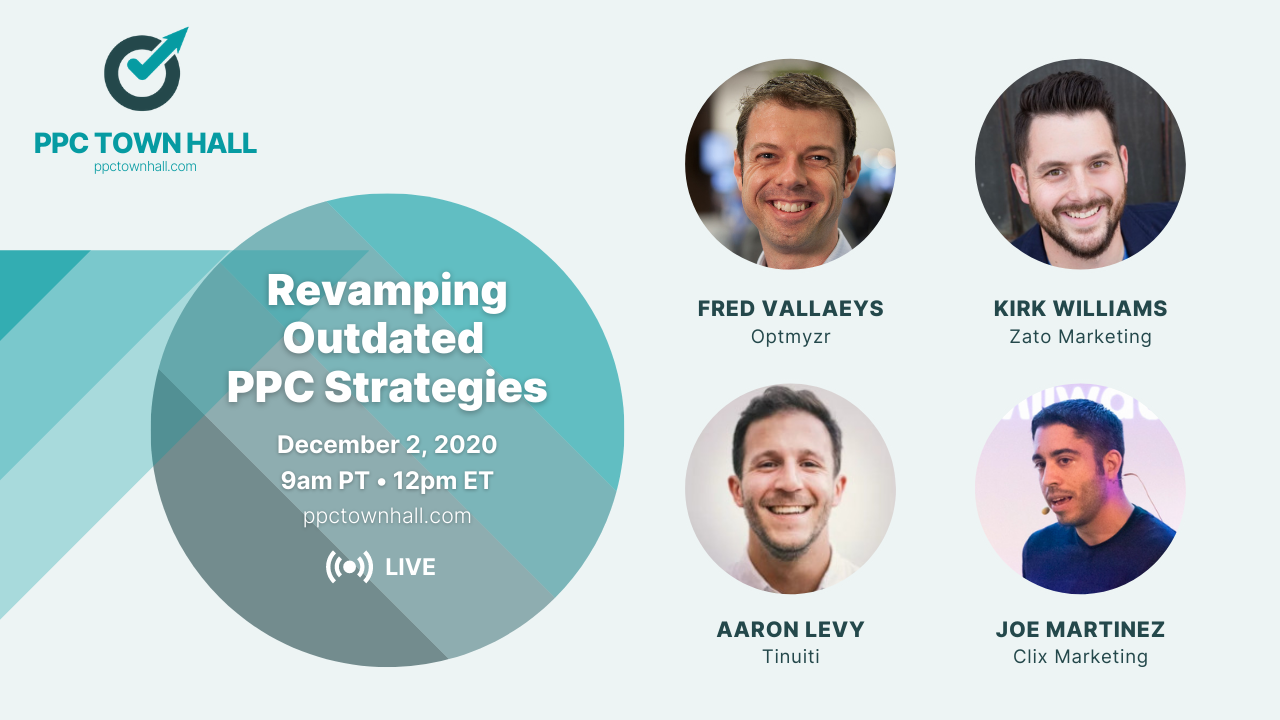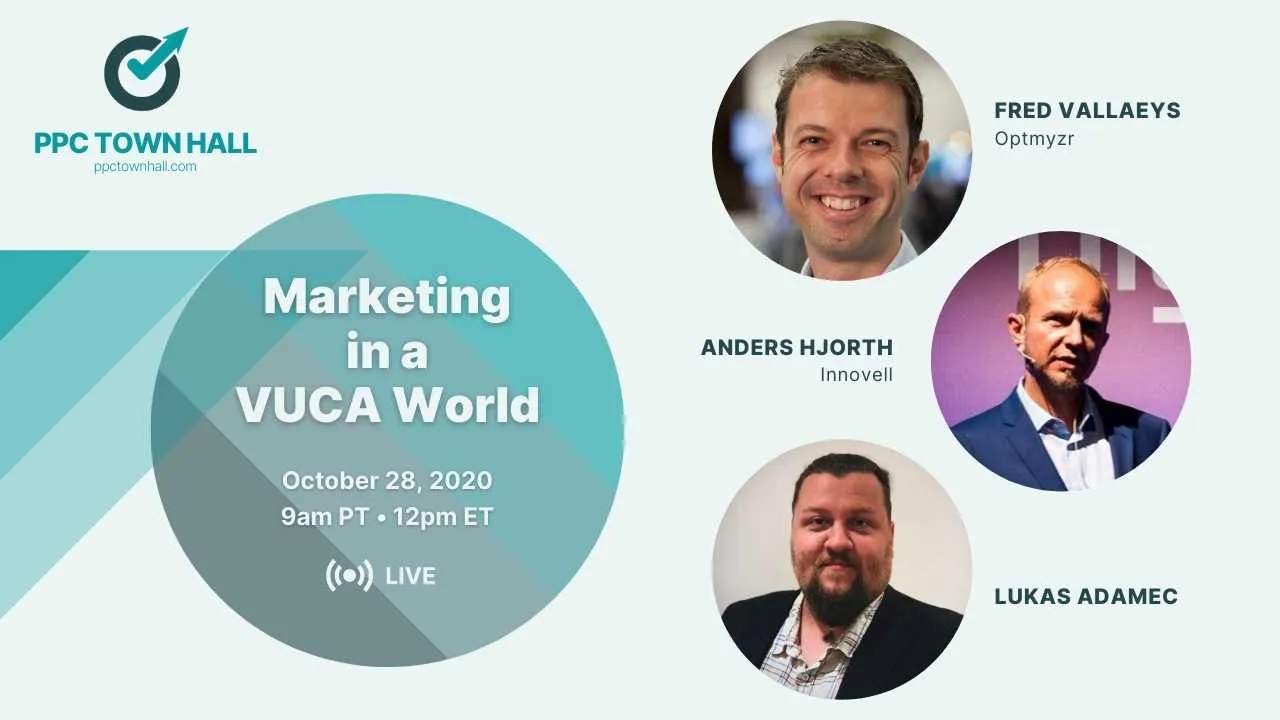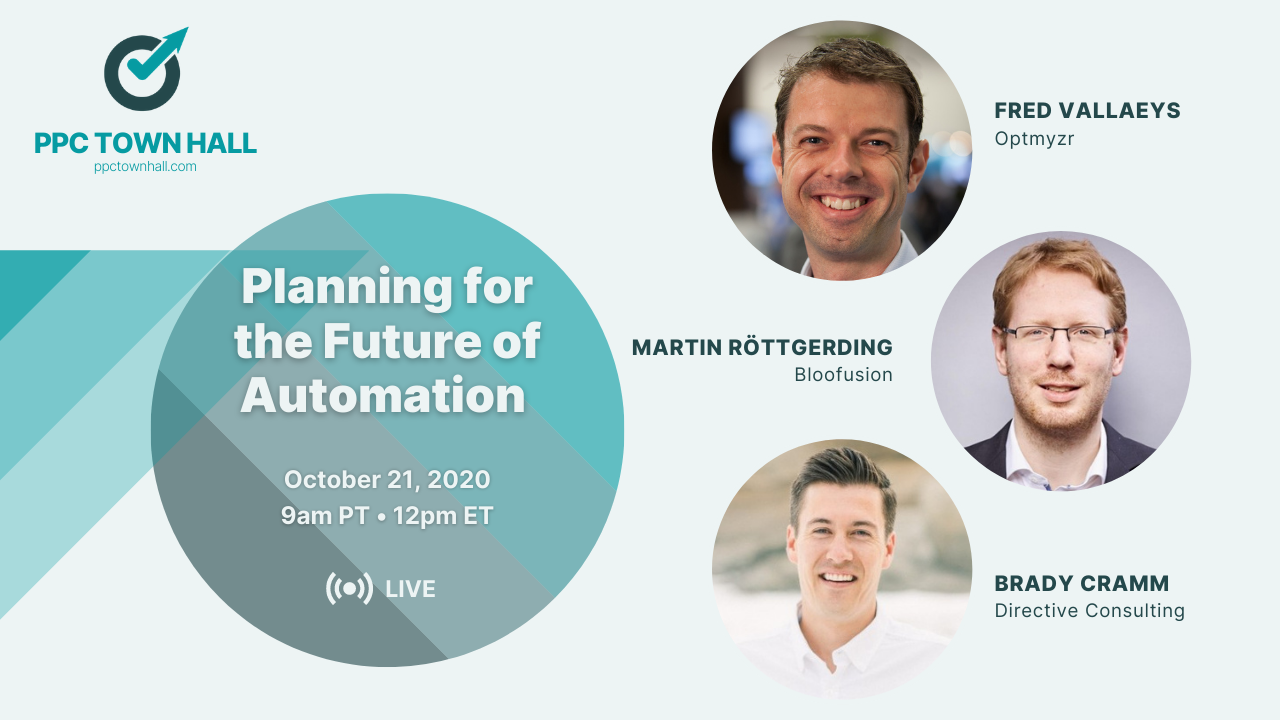Following last week’s successful PPC Town Hall, we returned with a 4th edition featuring some of the most knowledgeable minds in the PPC and paid search space.
If you happened to miss this week’s chat or any previous editions, check them all out on our YouTube channel or listen to them as podcasts over here.
This week, we focused on bid management in dynamic environments (such as the one created by COVID-19). Optmyzr CEO, Frederick Vallaeys, moderated a panel that included:
- Emi Wayner, Platform Partner Lead, Channel Sales, Google
- Peter Oliveira, Partner Development Analyst, Google
- Susan Wenograd, Chief Marketing Officer, Aimclear
- Martin Röttgerding, Head of SEM, Bloofusion Germany
Let’s take a look at 9 key insights from this week’s conversation that every agency, advertiser, and consultant can act on.
1. Market volatility continues to influence paid search.
We’re still in the middle of the COVID-19 crisis and unfortunately, it doesn’t look like we’ll be achieving any degree of ‘normal’ in the immediate future. With so much volatility across markets, it might be a good time to explore Google’s Performance Planner if you haven’t already.
To quote Google, “Performance Planner is a tool that lets you create plans for your advertising spend, and see how changes to campaigns might affect key metrics and overall performance.”
Performance Planner works with the latest data at any given time, but the current climate means that said data is rarely predictable and stable from one week to the next.
Peter recommended checking in on Performance Planner every week to explore the impact of shifting CPA, ROAS goals, and manual bids.
“The market is changing so frequently that a target ROAS that gave you a great volume last week might not do the same this week.”
2. Not all businesses have been affected equally.
Just like in every crisis, certain businesses are doing well even as others struggle to stay afloat.
You might have a client whose product or service is experiencing incredibly low demand, or one that’s waiting on overseas shipments and can’t run more ads until they’re able to fulfill additional orders.
Martin has seen that spectrum play out for some of Bloofusion’s client base.
“With our e-commerce clients, we’ve seen a number of differing challenges in the current crisis. Some were overwhelmed by demand. In a few cases, supply is an issue. Others have problems to keep up with packing and shipping. They’ve scaled back or turned off their campaigns to gain a little breathing room.”
3. Products that make isolation less boring are in demand.
With most states in the US (and many geographies around the world) under ‘shelter in place’ orders, it’s no surprise that Google has observed a significant uptick in volume for search terms related to products that make the experience more tolerable.
“We’re seeing that as people are spending more time online, usage is increasing across multiple devices,” Emi said.
“Consumers are searching for many things including technology that helps them work from home (+750%) as well as connected televisions (+37%), streaming devices (+38%), and gaming consoles (+48%).”
4. Consumers want to stay healthy and informed.
But not everything is about work and recreation. Consumers are also looking to maintain their health — and that of their finances.
“In healthcare, consumers are looking to keep themselves physically and mentally healthy while at home. For example, searches related to ‘online workouts’ increased 12x in the past 90 days,” Emi revealed.
Alongside that, people are also preoccupied with what’s happening in their bank accounts. With unemployment hitting record levels and even those in secure jobs suddenly looking cash flow issues in the eye, there’s been a surge in search volume for many related topics.
She added, “Consumers are also looking for financial help, professional advice, and mobile apps to plan for the future with a 9x increase in ‘financial help’ queries e.g. rent/mortgage relief, loan relief, deferred payments.”
5. Hard-hit industries are starting to figure a way out.
It’s worth noting that Tinuiti has an insightful tracker that monitors Facebook spend performance segmented by vertical (signup required).
A quick glance shows that travel is down 79.5% month-on-month but has risen 13.5% week-on-week. Fred speculated that this could be a sign that some of the industries COVID forced to pump the brakes are starting to put new strategies in place.
“People still want to travel; we just can’t,” he said. “These companies could realistically be building desire and demand, identifying an audience searching for these things during this restrictive phase, so they can convert them when travel opens up again.”
In the case of the automotive industry, which is also showing signs of resurgent spending, Susan speculated that it could be an effort to supplement TV commercials advertising never-before-seen offers like extended windows for no payments and 0% financing.
Either way, it’s evident that businesses that can’t convert at their usual pace are starting to acquire new users to fill the top of their funnel. Which means…
6. It’s a great time to use social media to build TOF.
You don’t have to be as hard-hit as travel or hospitality to consider taking advantage of low-priced social media.
Given that your clients have the budget to do so, now’s as strategic a time as ever to front-load your pipeline with consumers who are high on intent but limited in their capacity to act.
In other words, you can build desire and demand to a fever pitch — and do so with a fraction of the budget you’d normally need.
“We’re seeing some of the cheapest Facebook media with CPMs as low as $2-3. If you have the flexibility and the budget to focus on some top-of-funnel activity, it’s not a bad time to acquire users even if they’re not all going to convert right away,” Susan observed.
If you want to dive deeper into paid media performance during COVID-19, check out her article on Search Engine Journal.
7. Smart bidding offers more control than you realize.
While some advertisers and agencies might be hesitant to allow machines more than a modicum of control over their paid search strategies in the current environment, Smart Bidding might actually empower you more than you thought.
By using tens of millions of data signals, Smart Bidding pairs your inputs with similar auctions in the industry, so it works even if you’re short on first-party data.
“Smart bidding has the ability to pick up signals and compare it to other things going on in the market to make those adjustments. While it uses both aggregated and recent trends, it favors what’s been happening recently,” Peter noted.
The key is to remember that as human operators, we’re capable of watching the news and observing the world around us, and then using those observations to provide context to your paid search programs.
You really can influence Smart Bidding to work for you as long as you don’t ‘set it and forget it’!
8. Hyper-segmentation might actually be a good idea.
Under normal circumstances, it’s not absurd to look at the US as a single market: largely the same regulations, similar opening hours, and common methods of fulfillment.
Today, that’s simply not the case. States are enforcing their own COVID-19 restrictions, and even individual counties and cities can impose their own limitations.
So while it’s not the best idea to hyper-segment under normal circumstances, it might be useful to at least try it out right now — and Smart Bidding could be of help.
“Smart Bidding lets you bid at the intersection of each bid adjustment you can manually set,” Fred shared. “One example is adjustments for a location like New York which has been hit hard, one for time of day, and then another for the audience. It can look at the actual scenario of that one auction and how that combination actually matters.”
Peter agreed that if you see significant discrepancies in a geography or other parameter, separating campaigns can afford you a greater degree of control by putting individual levers on your campaigns.
9. Experts are making it easy for PPC pros to stay informed.
As the PPC community continues to face a number of hardships with finding reliable data, some of the industry’s leading experts have developed scripts that enable marketers to make quick observations about the shift in behavior.
One example is this COVID-19 visualization script developed by Fred, which overlays government actions related to the pandemic on Google Ads performance metrics.
“The idea is to help you see if certain events, like store closures, the start of shelter in place, the closing of schools, or the introduction of social distancing correlates in any way with drop-offs or spikes in performance.”
Martin has also developed a script that compares pre- and post-COVID behavior.
“Overall trends may be a traffic shift from mobile devices to desktop computers, people searching later at night, and weekdays blurring,” he said.
“However, we’ve found that this is not true for every account. In many cases, these things have remained more or less stable. The script can give you some handy charts about the situation in your own accounts.”
Conclusion
We started the first PPC Town Hall with two objectives in mind: to provide a safe space for paid search pros to vent and share their thoughts on everything that’s been happening, and to steer clear of using it as an opportunity to promote any kind of software or services.
Since then, the PPC community has embraced these weekly conversations, and they’ve evolved into a source of insights on how to approach these new problems that none of us really have all the answers to.
We’re in this together, and we’ll get out of it together.
Please join our next PPC Town Hall on Wednesday, April 22.








